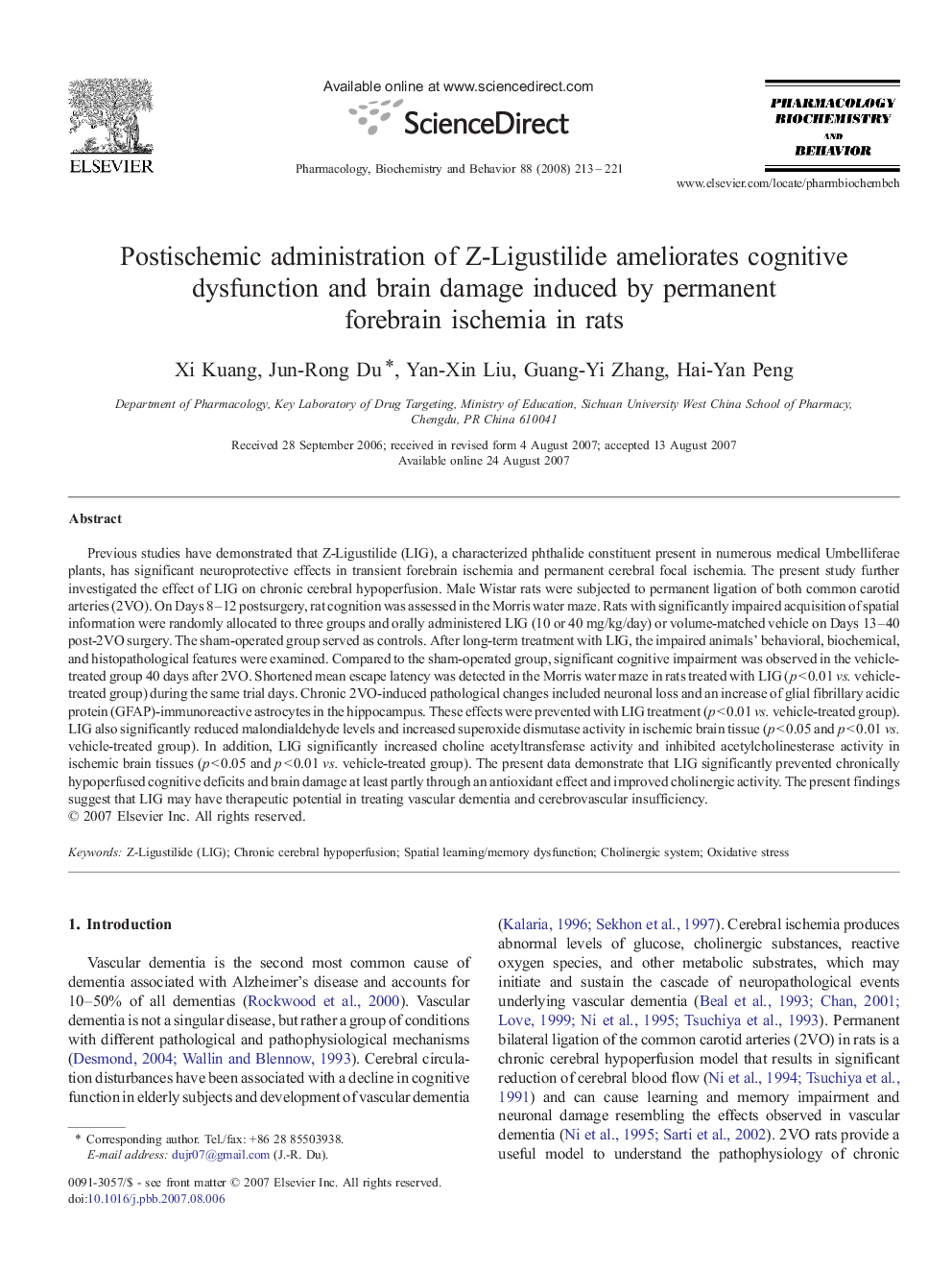| Article ID | Journal | Published Year | Pages | File Type |
|---|---|---|---|---|
| 2013636 | Pharmacology Biochemistry and Behavior | 2008 | 9 Pages |
Previous studies have demonstrated that Z-Ligustilide (LIG), a characterized phthalide constituent present in numerous medical Umbelliferae plants, has significant neuroprotective effects in transient forebrain ischemia and permanent cerebral focal ischemia. The present study further investigated the effect of LIG on chronic cerebral hypoperfusion. Male Wistar rats were subjected to permanent ligation of both common carotid arteries (2VO). On Days 8–12 postsurgery, rat cognition was assessed in the Morris water maze. Rats with significantly impaired acquisition of spatial information were randomly allocated to three groups and orally administered LIG (10 or 40 mg/kg/day) or volume-matched vehicle on Days 13–40 post-2VO surgery. The sham-operated group served as controls. After long-term treatment with LIG, the impaired animals’ behavioral, biochemical, and histopathological features were examined. Compared to the sham-operated group, significant cognitive impairment was observed in the vehicle-treated group 40 days after 2VO. Shortened mean escape latency was detected in the Morris water maze in rats treated with LIG (p < 0.01 vs. vehicle-treated group) during the same trial days. Chronic 2VO-induced pathological changes included neuronal loss and an increase of glial fibrillary acidic protein (GFAP)-immunoreactive astrocytes in the hippocampus. These effects were prevented with LIG treatment (p < 0.01 vs. vehicle-treated group). LIG also significantly reduced malondialdehyde levels and increased superoxide dismutase activity in ischemic brain tissue (p < 0.05 and p < 0.01 vs. vehicle-treated group). In addition, LIG significantly increased choline acetyltransferase activity and inhibited acetylcholinesterase activity in ischemic brain tissues (p < 0.05 and p < 0.01 vs. vehicle-treated group). The present data demonstrate that LIG significantly prevented chronically hypoperfused cognitive deficits and brain damage at least partly through an antioxidant effect and improved cholinergic activity. The present findings suggest that LIG may have therapeutic potential in treating vascular dementia and cerebrovascular insufficiency.
